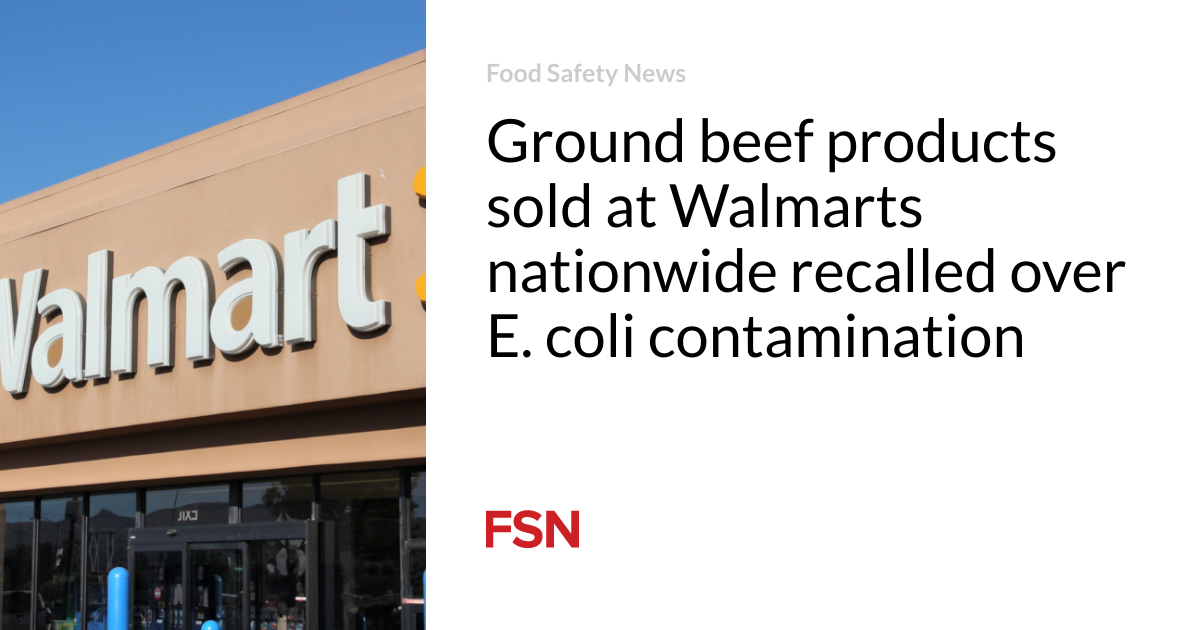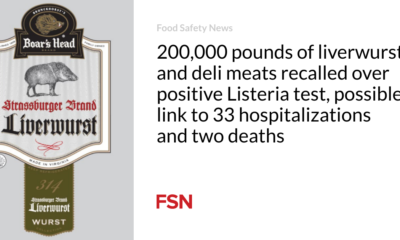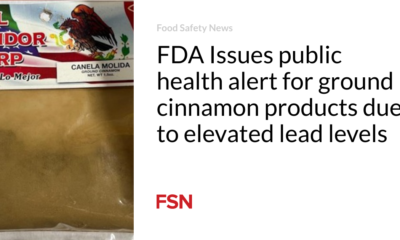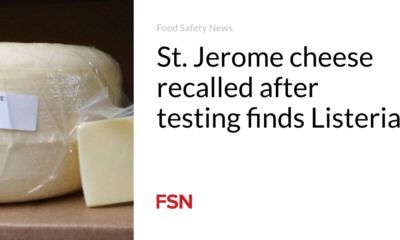Food
Ground beef products sold at Walmarts nationwide are being recalled due to E. coli contamination

Cargill Meat Solutions of Hazleton, PA, is recalling approximately 16,243 pounds of raw ground beef products possibly contaminated with E. coli O157:H7, according to the U.S. Department of Agriculture’s Food Safety and Inspection Service (USDA FSIS).
The company reported the problem to FSIS after determining that previously separated products had been inadvertently used in the production of ground beef.
These items were shipped to Walmart stores nationwide. FSIS is concerned that some products are in consumers’ refrigerators or freezers.
The raw ground beef products were produced on April 26-27, 2024.
Recalled products:
- £2.25. plastic-wrapped containers containing “93% LEAN 7% FAT ALL NATURAL LEAN GROUND BEEF” with lot code 117 and location number “EST. 86P” printed on the back of the label.
- £1.33. plastic-wrapped containers containing four “PRIME RIB BEEF STEAK BURGERS PATTIES” with lot code 118 and location number “EST. 86P” printed on the back of the label.
- £2.25. containers packed in plastic containing “85% LEAN 15% FAT ALL NATURAL ANGUS PREMIUM GROUND BEEF” with lot code 117 and location number “EST. 86P” printed on the back of the label.
- £2.25. plastic wrapped containers containing “80% LEAN 20% FAT ALL NATURAL GROUND BEEF CHUCK” with lot code 118 and location number “EST. 86P” printed on the back of the label.
- £1.33. plastic-wrapped containers containing four “80% LEAN 20% FAT ALL NATURAL GROUND BEEF CHUCK PATTIES” with lot code 118 and location number “EST. 86P” printed on the back of the label.
- £1.33. plastic-wrapped containers containing four “90% LEAN 10% FAT ALL NATURAL BEEF PATTIES” with lot code 118 and location number “EST. 86P” printed on the back of the label.
Product photos can be viewed here.
The products subject to recall all bear the USDA inspection mark on the front of the product label and the establishment number “EST. 86P” printed on the back of the product label.
At the time this recall was issued, there have been no confirmed reports of adverse reactions resulting from the consumption of these products. Anyone concerned about an illness should contact a healthcare provider.
Consumers who have purchased these products are urged not to consume them. These products should be discarded or returned to the place of purchase.
About E.coli infections
Anyone who has eaten any of the recalled products and developed symptoms of an E. coli infection should seek medical attention and tell their doctor about their possible exposure to the bacteria. Specific tests are needed to diagnose the infections, which can mimic other diseases.
The symptoms of E. coli infections vary from person to person, but often include severe stomach cramps and diarrhea, which is often bloody. Some patients may also have a fever. Most patients recover within five to seven days. Others may develop serious or life-threatening symptoms and complications, according to the Centers for Disease Control and Prevention (CDC).
About 5 to 10 percent of those diagnosed with E. coli infections develop a potentially life-threatening complication of kidney failure known as hemolytic uremic syndrome (HUS). Symptoms of HUS include fever, abdominal pain, feeling very tired, decreased frequency of urination, minor unexplained bruising or bleeding, and paleness.
Many people with HUS recover within a few weeks, but some suffer permanent injury or death. This condition can occur in people of any age, but is most common in children under five years of age due to their immature immune systems, in older adults due to a deteriorating immune system, and in people with compromised immune systems, such as cancer patients.
People who experience HUS symptoms should seek emergency medical care immediately. People with HUS are likely to be hospitalized because the condition can cause other serious and persistent problems, such as high blood pressure, chronic kidney disease, brain damage, and neurological problems.
(To sign up for a free subscription to Food Safety News, click here.)













